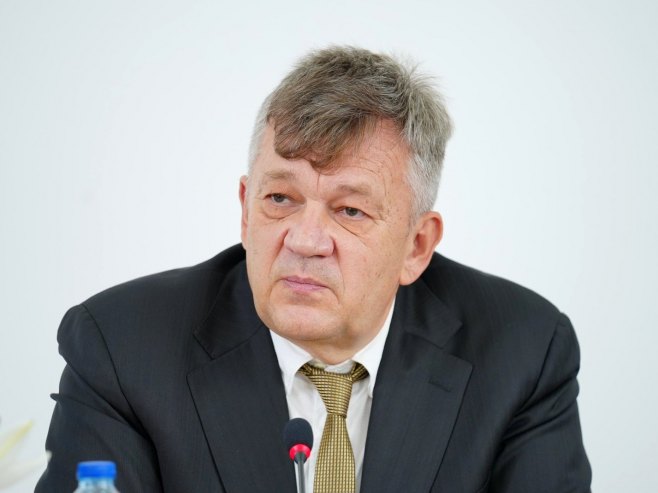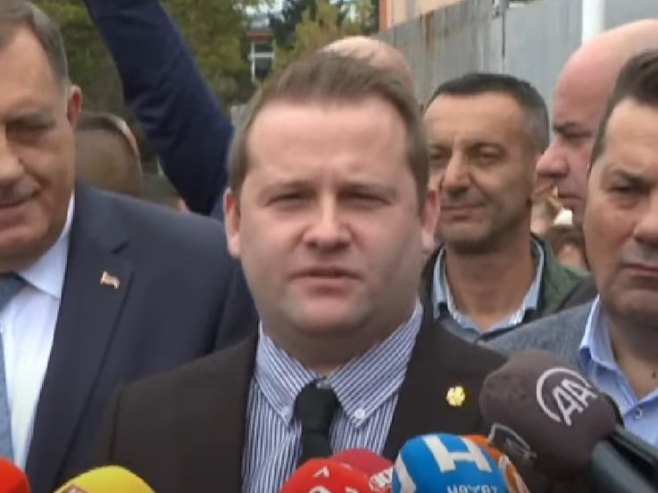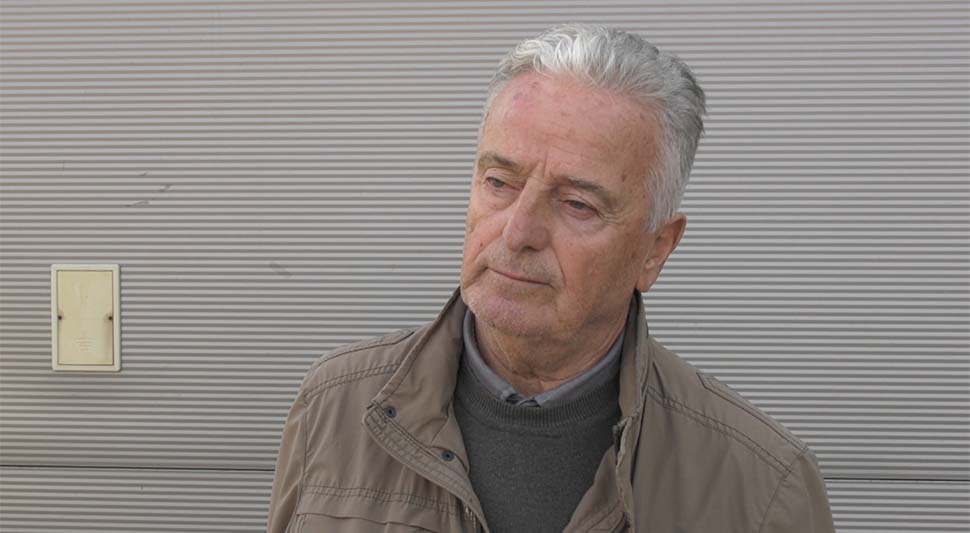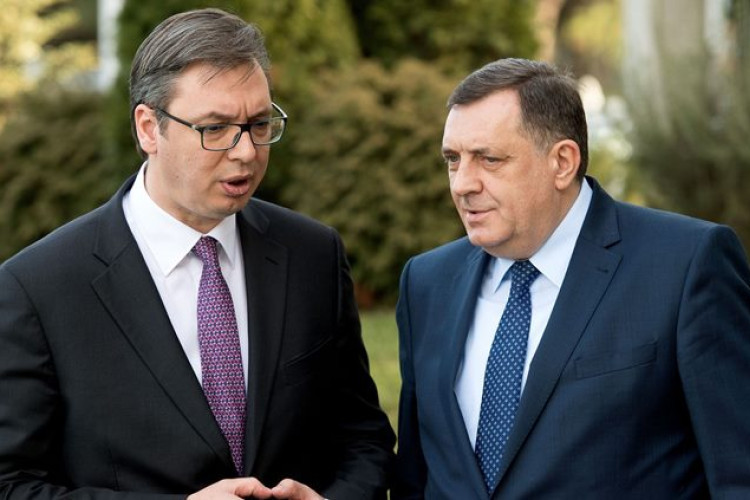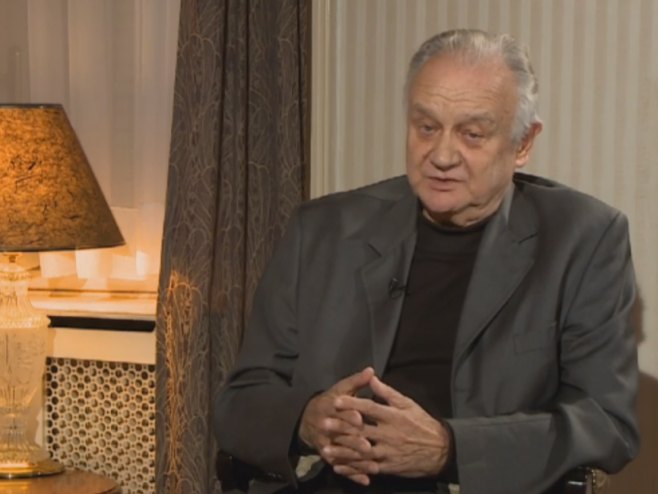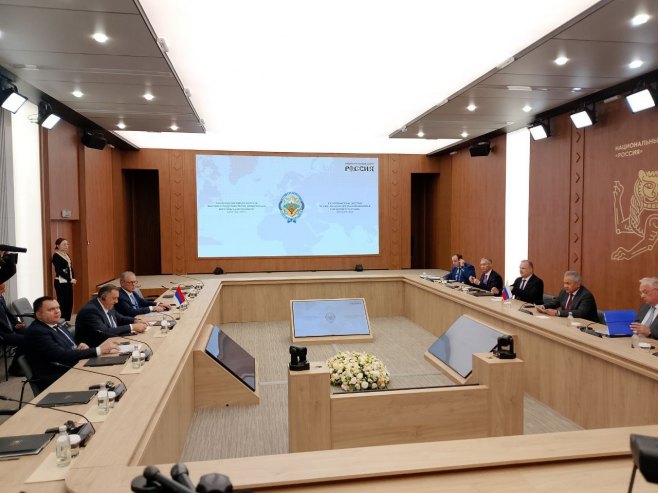The President of Republika Srpska, Milorad Dodik, has launched a major effort to protect Srpska’s constitutional competencies in light of new global dynamics. As time progresses, his position will only strengthen, along with the position of what he is defending, said Predrag Ćeranić, Dean of the Faculty of Security Studies at the University of Banja Luka.
Ćeranić pointed out that the judicial, but more so political, ruling against the President of Srpska served as a strong trigger for Serb resistance and the defense of constitutional principles granted to Srpska by the Dayton Agreement, which have been systematically eroded by decades of pressure from the Office of the High Representative (OHR).
Srna is publishing in full the commentary by Professor Ćeranić for the portal “Sve o Srpskoj”:
The verbal clash between newly elected U.S. President Donald Trump, his Vice President J.D. Vance, and Ukrainian President Volodymyr Zelensky has become a global headline. Carefully orchestrated, with a prepared scenario, the confrontation revealed a shift in U.S. foreign policy.
This is not only about Ukraine and Zelensky but also about the EU, NATO, and the Balkans. Trump’s priorities in this regard are clear: long-term security for Israel and establishing a new relationship with China.
Zelensky, caught off guard, rushed from Washington to London, seeking support from Prime Minister Keir Starmer, where he received a $2 billion loan promise.
However, after the temporary suspension of U.S. military aid and Elon Musk’s threat to disable Starlink, Zelensky changed his rhetoric. He recently stated that his clash with Trump was “regrettable” and that he is ready to work under Trump’s leadership to achieve lasting peace, adding that “it is time to mend relations”.
This sudden reversal exposes the vulnerabilities of Ukraine’s war effort. Without American missiles and Starlink’s crucial communications network, Ukraine’s front lines would rapidly collapse.
As Ukraine’s geopolitical worth declines, Western leaders—including Emmanuel Macron—are scrambling to secure resources. Macron even criticized Trump in Washington, noting that France had been negotiating mineral rights with Ukraine for nearly a year.
Meanwhile, Trump has hinted that he may publicly reveal details about Ukraine’s mineral agreements in a speech to Congress.
Dodik’s Position in a Changing Global Landscape
In light of these global shifts, President Dodik has intensified efforts to protect Republika Srpska’s constitutional authority. He has long demonstrated the ability to anticipate geopolitical trends and interpret global signals, which is why he recently pushed through key legislation in the National Assembly of Republika Srpska aimed at limiting the authority of the BiH Prosecutor’s Office and Court, abolishing the High Judicial and Prosecutorial Council, and banning SIPA from operating on Srpska’s territory.
These radical but carefully planned measures, aimed at returning Bosnia and Herzegovina to its original Dayton framework, have been met with support within Srpska—though also with skepticism.
Dodik firmly stated:
“These institutions are not in the BiH Constitution, and we do not recognize them.”
Meanwhile, Sarajevo is watching with disbelief—but they too see that geopolitical winds are shifting. This is evident not only from Trump’s stance on Ukraine but also from the U.S. decision to abstain from an anti-Russia UN resolution, while at the same time supporting Russia’s resolution on World War II victims.
A New Global Order is Taking Shape
The world is returning to normalcy, and the Western Balkans is being increasingly influenced by Eastern powers. This includes not only Serbia and Republika Srpska but also Bulgaria and Romania, extending from the Black Sea to the Adriatic—a dynamic that has been unfolding for some time.
A new “Yalta” agreement is underway.
Dodik’s political relevance extends far beyond Bosnia and Herzegovina, placing him in a regional and global context. This is further evidenced by the upcoming UN Security Council emergency session on Bosnia and Herzegovina, scheduled for March 6 at Russia’s request.
As time progresses, Dodik’s position will only strengthen, along with the legitimacy of his cause.
Dodik has also announced constitutional changes for Republika Srpska, stating that the new constitution will clarify Srpska’s exact constitutional position and that “everything that was imposed will no longer stand.”
If these reforms proceed as planned, the House of Peoples within the Srpska Assembly will be abolished, as it was a structure imposed by the OHR.
Dodik has repeatedly emphasized that Srpska does not seek secession but insists on adherence to the original Dayton Agreement.
A Political Verdict as a Catalyst for Resistance
The politically motivated court ruling against Dodik has served as a catalyst for resistance, reinforcing the defense of Srpska’s constitutional rights, which have been systematically eroded by the OHR over decades of foreign interference.
Dodik has even suggested that Trump’s administration might classify the OHR as a criminal organization, just as it did with USAID.
The World is Changing—Only Those Who Adapt Will Prosper
The world is shifting. Those who fail to adapt will struggle to survive politically. Dodik, recognizing this, has positioned himself strategically, ensuring that Republika Srpska is prepared for the global realignments ahead.
Source: RTRS



